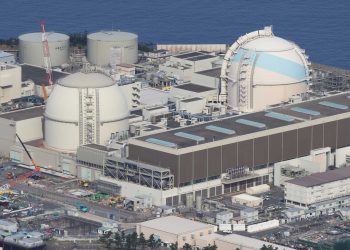,
Six major powers were still divided on a European draft resolution mandating UN nuclear-related sanctions on Iran, with Russia pushing for a postponement of a Security Council vote from Friday to at least Saturday.
Envoys of the 15-member council's five veto-wielding members — Britain, China, France, Russia and the United States — plus Germany huddled for what was supposed to be a last bargaining session ahead of the crucial vote.
But Russia's UN Ambassador Vitaly Churkin emerged from the meeting, saying he wanted the council vote put off to at least Saturday.
“We believe there should be a postponement (of the vote) to Saturday,” he added. “We'll need tomorrow for further discussions … My understanding is that they (the European sponsors) are not going to proceed with the vote tomorrow.”
But a Western diplomat close to the talks said the European sponsors of the text — France, Britain and Germany — intended to stick to their plan for a Friday vote.
In a last-minute exercise of brinkmanship diplomacy, the six envoys were due to meet again Friday morning to resolve the timing issue, the diplomat added.
Earlier Thursday, Qatar's Ambassador Nasser Abdelaziz al-Nasser, who chairs the council for December, said: “Tomorrow we are going to take action” on the draft.
US acting Ambassador Alejandro Wolff for his part said: “The Europeans have the decision on this. We'll see if we can do it tomorrow. That's our hope.”
Wolff said the six were “getting closer to a final text”, but cited lingering “issues we are concerned about,” without elaborating.
Asked whether the United States was prepared to accept a Russian abstention, he replied: “We are hoping for a consensus resolution but we want a tough resolution that will actually demonstrate to Iran that the international community is not going to accept their continued violations of their obligations.”
In Washington, US Secretary of State Condoleezza Rice said her government was seeking last-minute changes to the draft, which calls for a ban on trade with Iran in goods related to its nuclear and ballistic missile programmes.
Churkin said he offered some thoughts on how to ensure that the proposed sanctions target only prohibited sectors such as Iran's enrichment-related and reprocessing activities, including research and development and work on all heavy water related projects.”
The draft drawn up by Britain, France and Germany also slaps financial restrictions on persons and entities involved in proliferation-sensitive nuclear and missile programs.
To overcome Russian objections, the sponsors Wednesday watered down a contentious proposal for a travel ban on 12 officials directly linked to Iran's nuclear and ballistic missile programs.
But Churkin also wants to dilute a proposed assets freeze that would target 11 entities involved in Iran's sentisitive nuclear and missile programs.
Western countries want to impose sanctions on Iran over its refusal to suspend uranium enrichment, for fear that it would help Tehran develop nuclear weapons that would radically alter the balance of power in the Middle East.
Iran counters that its nuclear program is only aimed at providing energy for a growing population.
Iranian President Mahmoud Ahmadinejad vowed Thursday that nothing would stop Iran pushing ahead with its nuclear program.
“The United States and Europeans know well that they cannot do anything against Iran and their pressure will not hold back Iran's desire to fully obtain peaceful nuclear technology,” Ahmadinejad said.
“The bullying powers today, in confronting Iran's peaceful nuclear technology, are faced with a sea of courageous people,” he added in a speech in Gilan-e Gharb town, in Iran's western Kermanshah province.
Nasser expressed misgivings about sanctions, saying Thursday: “We don't know how the Iranians are going to react.”
“The Middle East is going through difficult times,” he told reporters at UN headquarters in New York. “We are worried about this matter. We live there.”
The draft warns that if Tehran refuses to comply with demands that it halt sentitive nuclear fuel work, the 15-member council “shall adopt further appropriate measures under Article 41 of Chapter Seven” of the UN charter”, a reference to economic sanctions only.









